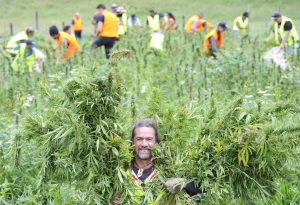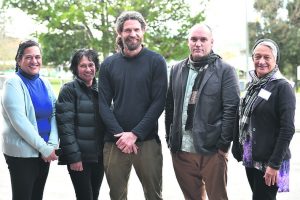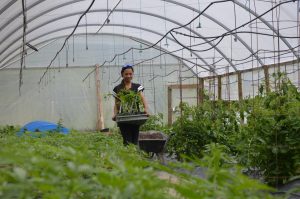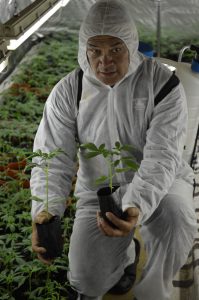




Hemp venture places community at the heart of business
Hikurangi Enterprises, a charitable company based in Ruatoria, is placing local employment and environmental sustainability at the centre of a hemp growing venture that aims to build economic development in the Tairāwhiti region.
As a business enterprise, they offer a strong example of how local businesses can incorporate community-led development principles to enhance well-being, engagement and ownership within their communities.
Hemp is the same plant as marijuana but with low-THC (tetrahydrocannabinol) so it doesn’t carry the psychotropic effect. It is increasingly sought after for its medicinal properties, the market this venture is capitalising on. With the perfect climate and a wealth of existing local knowledge and expertise, hemp offers a high value alternative to marijuana for the region.
Using existing strengths and assets
There are 15 local growers already involved in the venture with 300 years growing experience between them. They are the experts in the field and have provided the tools and resources to trial varieties and develop a premium quality crop.
Viewed positively by the local community, many landowners have offered blocks of land for growing hemp when the venture is ready to scale up.
“People are willing to give anything a go that has some real potential and that is aligned with community values. This is seen as consistent with the values of whānau and landowners in a way that other opportunities [such as oil and gas exploration] aren’t.” – Manu Caddie of Hikurangi Enterprises
Working adaptively, learning informs planning and action
Flexibility is essential to this venture as the social, political and legal landscapes around growing and selling hemp are constantly shifting. It is a brand new industry in Aotearoa that is highly regulated. These factors make investors cautious.
After a successful crop trial in 2016, Hikurangi Enterprises is in the process of strengthening local and international business relationships, working through complex regulation laws and market testing their products.
There are many hurdles yet to be faced but the community remains confident in the venture. They are developing a business model that encourages local community investment and protects growers so that they can collectivise and have ownership over the production space.
“We’re trying to be community-led and owned in real ways. That includes making sure the community has tangible ownership not just philosophical.” – Manu Caddie
Even at these early stages, the positive community impacts are visible. Hemp growers can work with the plant they know and love without risking arrest and time away from their families. They are seen as making positive contributions to whānau well-being and the development of the region. Alongside the obvious economic benefits for the area, these shifts in perception allow the flourishing of a strengthened and empowered community.
“Locals who had been seen as dope growers are being seen as productive contributors to local economic development and hard working horticulturalists. They are sensing that change already.” – Manu Caddie
To find out more about the work of Hikurangi Enterprises visit https://hikurangi.enterprises/.




